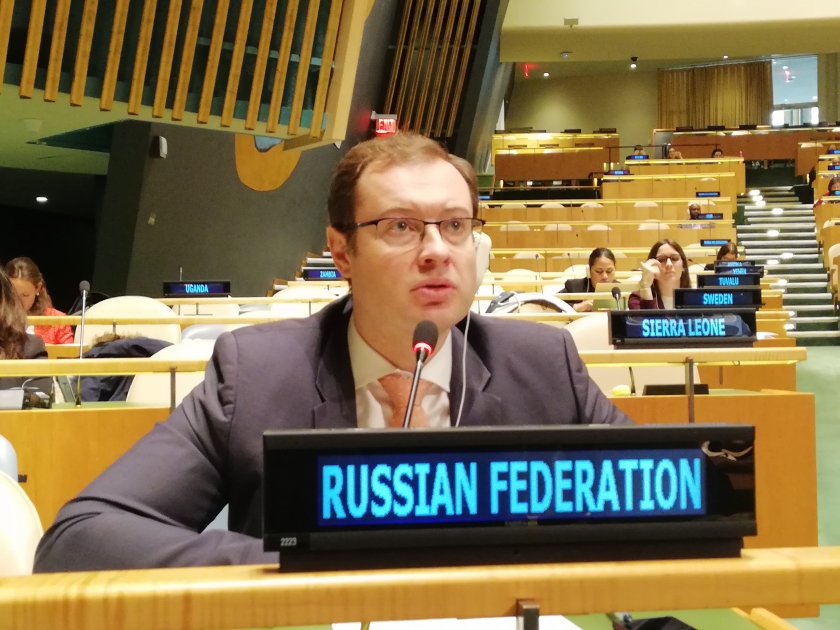Statement by Deputy Permanent Representative Dmitry Chumakov at the 74th session of the UNGA under agenda item 126 "Global Health and Foreign Policy"
Mr. President,
The Russian Federation gives high priority to the topic of strengthening health systems in its international cooperation under the socio-economic pillar of the UN activities. We believe that such issues as the control and prevention of communicable and noncommunicable diseases, combatting antimicrobial resistance, promoting balanced diets and healthy lifestyles should unite the international community in finding effective ways to address them based on consensus.
Guided by these considerations, we supported the adoption of the draft resolution on global health and foreign policy. We are convinced that the goals of achieving universal health coverage with the emphasis on primary health care, the implementation of integrated multisectoral measures and the involvement of interested stakeholders with the leading role of governments, are a foundation of inclusive and effective approaches to protecting public health.
We have to state that the submitted draft contains a number of controversial provisions and non-agreed terms that are not directly related to the suggested theme of the resolution. We are concerned that year after year there are attempts to shift the focus of this important document from key health aspects to border-line issues. It risks to spread duplication of work with specialized UN platforms, to decrease attention to pressing problems of international cooperation within the medical agenda, and to politicize the sectoral policy discussions. We would like to re-emphasize that we do not support this approach and strongly call for maintaining the focus of this document directly on the topic of health.
We regret to note that the organization of the negotiation process cannot be called optimal this year. The beginning of consultations coincided with the peak of the UNGA Second and Third Committees work, which seriously hindered meaningful participation in the negotiations on the draft. Selective consideration of Member States' proposals and unfair modalities of work raise questions. Finally, the unprecedented rash conclusion of talks on a non-agreed text undermines consensus among Member States, and consensus is a key success factor of the whole process.
In these circumstances, we are forced to disassociate ourselves from consensus on a number of provisions of the document. This applies to paragraph PP.42, which misinterprets the mandate of the World Health Organization, and paragraph OP.12, which uses non-agreed language on emergencies and combat against sexual violence. We do not agree with references in the draft to internal secretariat documents that infringe on the prerogatives of Member States – this particularly relates to paragraph PP.21. It is regrettable that our legitimate concerns on these and other issues have not been addressed. We reserve the right not to recognize as agreed the provisions of this resolution that do not correspond to our approaches.
In the future, we are ready for constructive cooperation in order to jointly elaborate consensual decisions on a unifying health agenda.
Thank You for Your attention.
